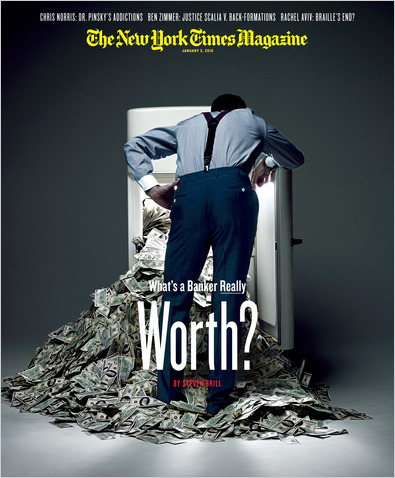Setting Pay at Bailed Out Companies
January 03, 2010

Steven Brill’s long January 3, 2010 New York Times Sunday Magazine piece on Kenneth Feinberg’s experience in setting executive pay at the “TARP
7,” as he calls them, illuminates how wide the gulf between top compensation at financial companies and the plight of working Americans really has become. This should be must-read material for anyone concerned with social justice in America.
It also highlights the discouraging lack of progress that has been made to date in cementing real reforms in the way financial companies are run and their leaders compensated. If the near-collapse of the world’s financial system isn’t enough of a goad to get this done, what is?
The most telling part of this long piece is AIG’s representation that it would be unfair to force its executives to take the lion’s share of their compensation in company stock, because it is “essentially worthless,” as its vice-chair is quoted as saying. The compromise Feinberg adopted retained the structure, but perhaps not the substance, of his original demand. But all the worker bee suckers in AIG—and by extension all the other companies under Feinberg’s supervision—probably won’t have the chance to shift out of the “essentially worthless” stock in their ESOPs, or maybe in their 401(k)s, if they’re really unlucky. And the folks who lost their jobs and homes as a result of these financial companies’ mistakes won’t get any “do-overs,” either.
House Financial Services Chairman Barney Frank (D-MA) is at his best in this article, a refreshing voice of genuine progressivism. We can only hope that his sensible and straightforward observations about this compensation adventure spreads to more of his colleagues.
Also in this Sunday Magazine is a provocative piece by Matt Bai considering the distance between the populist demands of the Democratic left and what Bai calls the President’s “progressivism.” These two bookends of the Magazine offer a sobering start to the new decade.
